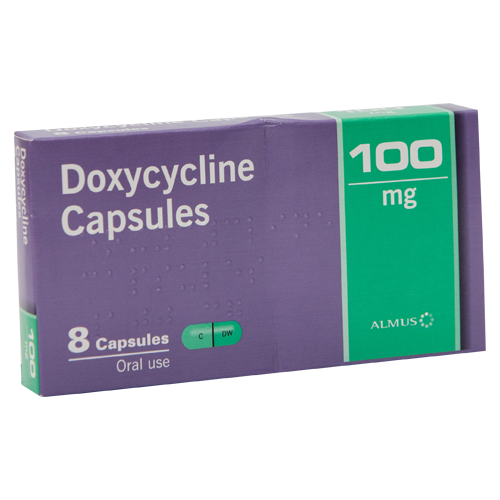How To Take
You need to start taking the tablets 2 days before visiting a malaria area and keep taking the tablets for 4 weeks after you leave.
Take Doxycycline at the same time each day with a large glass of water.
Side Effects of Doxycycline
Side effects may include: anorexia, nausea, diarrhoea, thrush, sore tongue (glossitis), headaches, blurred vision or tinnitus. Erythema (sunburn) due to sunlight photosensitivity; sunscreens are important and if severe alternative antimalarials should be used.
Malaria Information
Malaria is a serious tropical disease spread by mosquitoes. If malaria is not diagnosed and treated promptly, it can be fatal.
Malaria risk areas
Malaria is found in more than 100 countries, mainly in tropical regions of the world including:
- large areas of Africa and Asia
- Central and South America
- Haiti and the Dominican Republic
- parts of the Middle East
- some Pacific islands, such as Papua New Guinea
Malaria is not a problem in the UK. More information about the risk of malaria in specific countries can be found on the Fit for Travel website.
ABCD to preventing Malaria
A - Be Aware When There is a Risk However Small
Find out if there is a malaria risk in the area you are visiting.
To check whether you need to take preventative malaria treatment for the countries you are visiting, see the Fit for Travel or theNational Travel Health Network and Centre (NaTHNaC) websites.
Aspects of travel may increase the risk e.g. rural travel, rainy season or unscreened accommodation.
B - Keep Mosquito Bites to a Minimum
Use clothing to protect the skin, particularly between dusk and dawn when mosquitoes feed.
Use DEET-based insect repellent on exposed areas of skin.
Sleep under a mosquito net that is impregnated with insecticide.
Use air conditioning (if available) and plug in vapourisers to protect your room.
C - Use Antimalarials Correctly
The antimalarial tablets recommended for you will depend not only on effectiveness but also on suitability, side effects, cost and which regime suits you best.
Tablets must be taken regularly according to the manufacturer's instructions.
Delayed illnesses - the incubation period of benign (mild) malaria may be long (up to a year or more).
D - Report any Feverish Illness Promptly to a Doctor
If you experience any flu-like symptoms after returning you should seek immediate medical attention and tell the doctor about your background and recent travel history. (Particularly within 3 months of return but even up to 1 year and say you have been to a malarious area.)
You may need to take a supply of personal emergency treatment abroad with you if you are going to be remote from medical facilities since treatment should always be started promptly. Discuss this option with a Travel Advisor or other healthcare professional.
Patient Information Leaflet
Always read the patient information leaflet before commencing treatment. Patient information can be found here.
Alternatives
There may be alternative anti-malarial tablets that are suitable for your trip.
Always check your destination(s) on http://www.fitfortravel.nhs.uk/ to determine which malaria tablets are suitable for your trip.
For advice on your travel destinations visit Central Travel Clinic.

